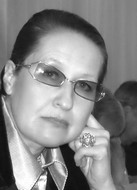Neuropeptide effects on movements pace in archery
Фотографии:
ˑ:
Dr.Biol., Professor R.V. Tambovtseva1
Master's student D.I. Sechin1
1Russian State University of Physical Education, Sports, Youth and Tourism (GTSOLIFK), Moscow
The experimental study was designed to rate effects of Semax neuropeptide on the archers’ movement pace, with a computerized tapping tests applied for the pace rating purposes. The Semax 0.1% administration in the doze of 500mkg was found to cause changes in the hand movement pace in the six ten-second test intervals. The Semax 0.1% administration was tested to be in the positive correlation with the maximal hand movement pace, reduction of relative bodily fat mass and relative water content. The study data and analyses show the need for a higher priority being given to the studies of effects of different neuropeptides on the physical working capacity.
Keywords: Semax, neuropeptides, pace, ergogenic tools, sports.
References
- Aksenova I.N. Izmenenie funktsionalnogo sostoyaniya operatorov EVM pod vliyaniem fizicheskikh trenirovok s elementami lechebnoy gimnastiki i priema semaksa. Avtoref. dis. kand. med. nauk [Change in functional state of computer operators under physical training with elements of therapeutic gymnastics and semax intake. PhD diss. abstract]. Moscow, 1993, 20 p.
- Ashmarin I.P. Neyrokhimiya. Uchebnik dlya biologicheskikh i meditsinskikh vuzov [Neurochemistry. Textbook for biological and medical universities]. Moscow: Institute of Biomedical Chemistry, Russian Academy of Medical Sciences publ., 1996.
- Belenichev I.F. Sovremennye nootropnye preparaty: klassifikatsiya, mekhanizm deystviya, perspektivy primeneniya [Modern nootropic drugs: classification, mechanism of action, prospects of use]. Zaporozhskiy meditsinskiy zhurnal, 2010, vol. 12, no. 5, pp. 122-126.
- Volkov N.I., Voytenko Y.L., Tambovtseva R.V. Problemy ergogennykh sredstv i metodov trenirovki v teorii i praktike sporta vysshikh dostizheniy [Problems of ergogenous methods and techniques of training in theory and practice of elite sport]. Teoriya i praktika fiz. kultury, 2013, no. 8, pp. 68-72.
- Volkov N.I., Oleynikov V.I. Ergogennye effekty sportivnogo pitaniya: nauchno-metodicheskie rekomendatsii dlya trenerov i sportivnykh vrachey [Ergogenic effects of sports diet: theoretical and methodical recommendations for trainers and sport physicians]. Moscow: Sovetskiy sport publ., 2012, 100 p.
- Ganapolsky V.P. Razrabotka novykh peptidnykh preparatov. Avtoref. dis. dokt. med. nauk [Development of new peptide preparations. Doct. diss. (Med.) abstract]. St. Petersburg, 2008, 37 p.
- Koryakina Yu.V. Apparatno-programmnye kompleksy issledovaniya psikhofiziologicheskikh osobennostey sportsmenov [Hardware-software complexes to study psychophysiological characteristics of athletes]. Voprosy funktsionalnoy podgotovki v sporte vysshikh dostizheniy, 2013, vol. 1, no, 1, pp. 70-78.
- Koryakina Yu.V. Apparatno-programmny kompleks «Sportivny psikhofiziolog» (APK «Sportivny psikhofiziolog») # 2010617789 [Hardware and software complex "Sports psychophysiologist" (ASC "Sports psychophysiologist") № 2010617789]. Computer programs. Database. Topologii integralnykh mikroshem, 2011, no. 1, vol. 2, P. 308.
- Makarova D.A. Vliyanie nootropnykh preparatov na uspevaemost studentov [Nootropic drugs versus students’ progress]. Bulletin of medical Internet conferences. LLC ‘Nauka i innovatsii’, 2015, vol. 5, no. 12.
- Tambovtseva R.V. Sportivnaya ergogenicheskaya dietetika. Ucheb. posobie [Sports ergogenic dietetics. Study guide]. Moscow: OntoPrint publ., 2016, 151 p.




 Журнал "THEORY AND PRACTICE
Журнал "THEORY AND PRACTICE